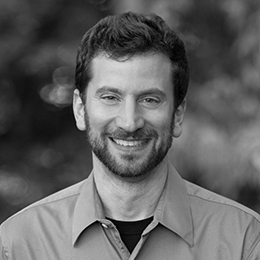The Foreign Policy of Guilt
In the aftermath of the bombings in London, Prime Minister Tony Blair has asked the British people to remain calm and maintain their daily routines; the terrorists win, he says, if one gives in to fear. This, you may remember, was also George W. Bush’s response after Sept. 11, when he called on Americans to return to our shopping malls and not be afraid.
But we should be afraid — precisely because of Blair’s and Bush’s policies.
We face an enemy, Islamic totalitarianism, committed to our deaths. Its agents have shown an eagerness to kill indiscriminately in London, Madrid, New York and elsewhere, even at the cost of their own lives. They continually seek chemical and nuclear weapons; imagine the death toll if such devices had been used in London’s subway bombings. In the face of this mounting threat, what is our response?
Do we proudly proclaim our unconditional right to exist? Do we resolutely affirm to eradicate power base after power base of the Islamic totalitarians, until they drop their arms, and foreign governments and civilian populations no longer have the nerve to support them?
No. Blair’s response to the London bombings, with Bush and the other members of the G8 by his side, was, in meaning if not in explicit statement, to apologize and do penance for our existence.
Somehow we in the West and not the Palestinians — with their rejection of the freedoms attainable in Israel and their embrace of thugs and killers — are responsible for their degradation. Thus, we must help build them up by supplying the terrorist-sponsoring Palestinian Authority with billions in aid. And somehow we in the West and not the Africans — with their decades of tribal, collectivist and anticapitalist ideas — are responsible for their poverty. Thus we must lift them out of their plight with $50 billion in aid. This, Blair claims, will help us “triumph over terrorism.”
The campaigns in Afghanistan and Iraq might be considered exceptions to this orgy of penance, but that would be an error. In neither war was the aim to smash the enemy. Unlike in WWII, when the Allies would flatten cities to achieve victory, the American and British armies, by explicit order, tiptoed in the Middle East. Terrorists and insurgents went free, free to return to kill our young men, because we subordinated the lives of our soldiers to concern for the enemy’s well-being and civilian casualties. Our goal was not victory but, as Bush so often tells us, to bestow with our soldiers’ blood an unearned gift on these people, “freedom” and “democracy,” with the hope that they would then stop killing us.
According to Blair, our duty is to shower the globe with money. According to Bush, our duty is to shower the globe with “democracy.” Taken together, the meaning of their foreign policy is clear. The West has no moral right to exist, because it is productive, prosperous and free; materially and spiritually, with its money and its soldiers’ lives, the West must buy permission to exist from the rest of the world. But the rest of the world has an unquestionable right to exist, because it is unproductive, poor and unfree.
Until we in the West reject this monstrous moral premise, we will never have cause to feel safe.
What we desperately need is a leader who proclaims that the rational ideals of the West, reason, science, individual rights and capitalism, are good — that we have a moral right to exist for our own sake — that we don’t owe the rest of the world anything — and that we should be admired and emulated for our virtues and accomplishments, not denounced. This leader would then demonstrate, in word and deed, that if those opposed to these ideals take up arms against us, they will be crushed.
Support for totalitarian Islam will wither only when the Islamic world is convinced that the West will fight — and fight aggressively. As long as the insurgents continue with their brutal acts in Iraq, unharmed by the mightiest military force in human history, as long as the citizens of London return to “normal” lives with subways exploding all around them, as long as the West continues to negotiate with Iran on nuclear weapons — as long as the West continues to appease its enemies, because it believes it has no moral right to destroy them, totalitarian Islam is emboldened.
It is the West’s moral weakness that feeds terrorism and brings it fresh recruits. It is the prospect of success against the West, fueled by the West’s apologetic response, that allows totalitarian Islam to thrive.
Bush has said repeatedly, in unguarded moments, that this war is un-winnable. By his foreign policy, it is. But if the British and American people gain the self-esteem to assert our moral right to exist — with everything this entails — victory will be ours.







